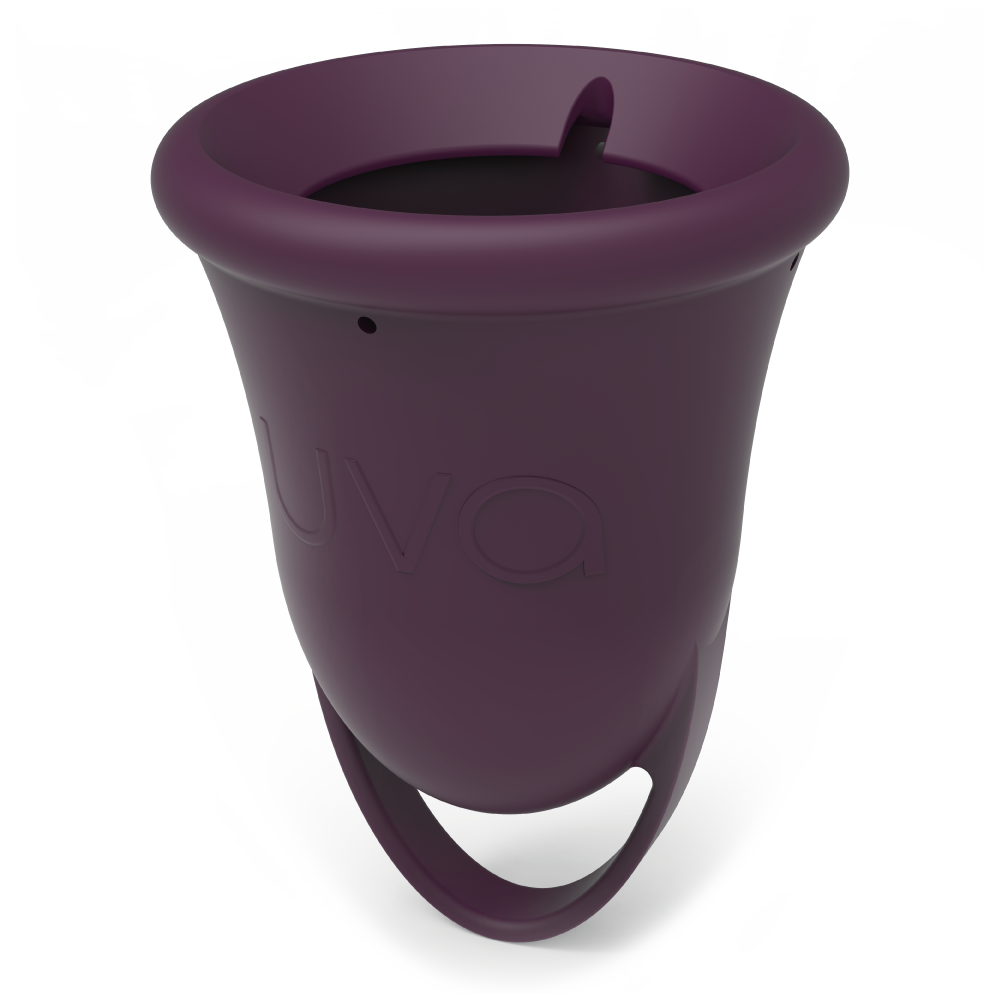 Store
StoreRECOMMENDED PRODUCT
Uva Menstrual Cup
Ultra-soft silicone for your comfort and peace of mind.
$29.99

 How to use the cup
How to use the cup- FAQ
- Blog
 Store
StoreRECOMMENDED PRODUCT
Uva Menstrual Cup
Ultra-soft silicone for your comfort and peace of mind.
$29.99

 How to use the cup
How to use the cup- FAQ
- Blog

Heavy Period
Heavy periods, medically known as menorrhagia, are a common concern for many women. This is characterized by excessive or heavy bleeding that can interfere with daily quality of life. Heavy menstruation or heavy periods are also considered when the number of days of bleeding is more than 7 days. In this article, we will explore the causes, symptoms, treatments, and strategies for managing this condition. To provide valuable and practical information for women who are affected by it.
There are other problems with your period, such as getting it more than once a month, not getting it, and the color, among others. Not all of them are the same, and the symptoms and treatments will not be the same either, which is why we will first talk about what heavy periods are.
Understanding Heavy Periods
What are Heavy Periods or Heavy Menstruation?
Heavy periods are a condition where bleeding during the menstrual cycle is excessively heavy or prolonged. For many women, this may mean having to change hygiene products every two hours or less or experiencing periods that last more than a week.
It may be that when you bleed, you think it is a lot, but you don’t know exactly how much it is, due to the tampon or pad and how much it absorbs. Most women do not lose as much blood as they think. Adolescents tend to have slightly heavier bleeding. This is why you should see the amount of bleeding and other symptoms.
How do you know if you have heavy bleeding?
It is difficult to know how much we bleed or how much is too much, but with the help of a menstrual cup, we can know the amount of bleeding and how often we have to remove the cup. A woman’s normal bleeding is 2 to 3 tablespoons a month, making it about 30 to 50 milliliters. With the help of the cup, you can know exactly how much you have bled since it has measurements inside it. It does not contain cotton or other components that could prevent you from knowing the exact amount of bleeding.
Symptoms and signs
Some of the most common symptoms include:
- Bleeding that soaks through one or more tampons or sanitary pads every hour for several consecutive hours.
- You need to use double protection to control menstrual flow.
- Night bleeding that requires getting up to change protection.
- Blood clots the size of a dime or larger.
- Tiredness, fatigue, or shortness of breath (symptoms of anemia).
- Very strong menstrual pain (which prevents you from doing your daily activities).
- Bleeding for more than a week.
Causes of Heavy Periods
The causes of heavy periods can be varied and include:
- Hormonal disorders, such as those that occur during perimenopause or with thyroid problems.
- Presence of uterine fibroids or polyps.
- Alterations in the lining of the uterus.
- Complications with pregnancy, such as an ectopic pregnancy.
- Liver or kidney diseases.
- Coagulation disorders.
It is important to consult a specialist to identify the specific cause and receive the appropriate treatment.
Treatments and Management of Heavy Periods
The choice of treatment will depend on the underlying cause, the woman’s general health, and her reproductive desires. Some options include:
- Medications such as non-steroidal anti-inflammatory drugs, oral contraceptives, or hormonal therapy.
- Medical procedures, such as endometrial ablation or myomectomy.
- In more severe cases, hysterectomy may be an option.
In addition to medical treatments, there are day-to-day management strategies that can help:
- Keep a record of the menstrual cycle and the intensity of bleeding.
- Use hygiene products appropriate for the intensity of the flow.
- Adopt a balanced diet rich in iron and other essential nutrients to combat anemia.
- Practice relaxation techniques and regular exercise to improve overall health and reduce stress.
Conclusion and Next Steps
Heavy periods are a condition that can be successfully managed through a combination of medical treatments and lifestyle changes. It is vital to seek the guidance of a healthcare professional to obtain a proper diagnosis and treatment plan. With the right information and strategies, women can significantly improve their well-being and quality of life. It is important to treat heavy menstruation, as it can lead to other health problems such as iron deficiency. Or you may even have this bleeding because of something that is wrong and needs to be treated before it gets worse.











